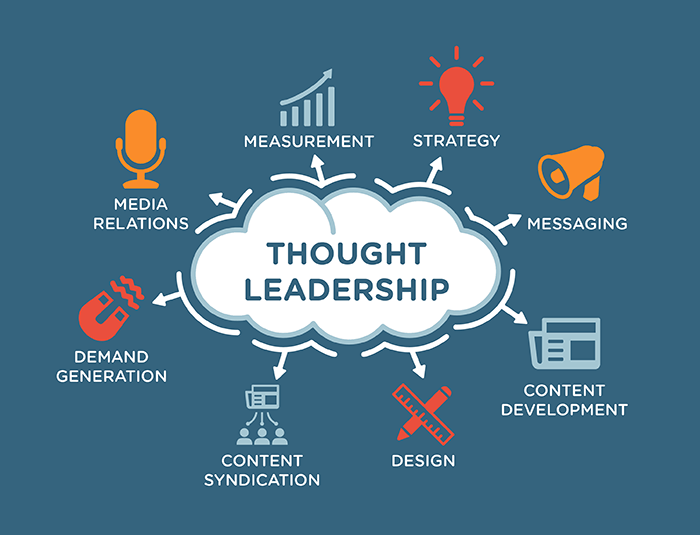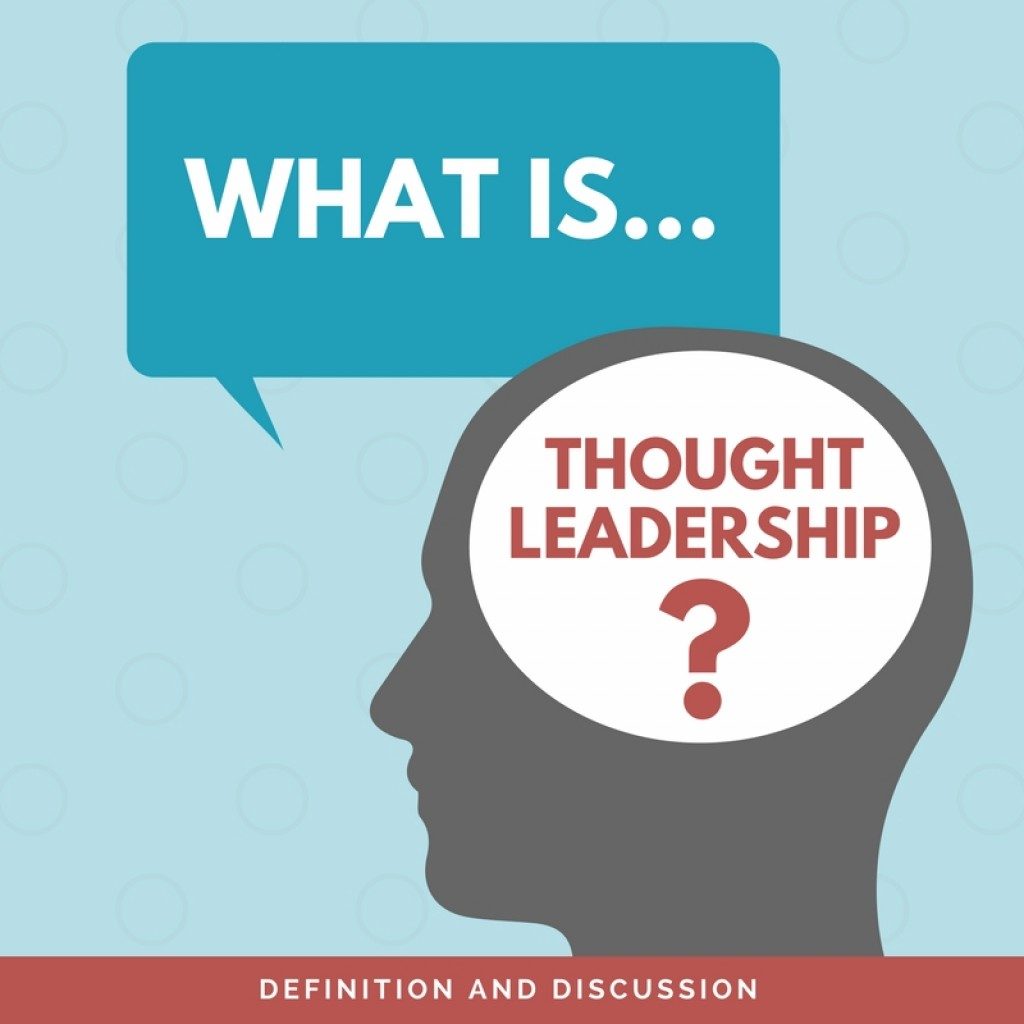In today’s digital age, understanding customer behavior is crucial for business success. Multi-touch attribution offers a way to evaluate each interaction in a customer’s journey. This method helps businesses identify which marketing efforts drive conversions. If you would like to master multi-touch attribution for PR success, this blog article is for you.
For business owners and marketing teams, this can be a game changer. It allows for smarter marketing investments and improved customer engagements. But, what exactly is multi-touch attribution, and how can it be leveraged effectively?
This guide will explore these questions and more. We’ll delve into the various models of multi-touch attribution. Each model offers unique insights into customer interactions.
Moreover, we’ll discuss how a public relations-centric approach can enhance these efforts.
Media relations, for one, plays a vital role in shaping customer perceptions. By integrating PR strategies, businesses can boost their Search Engine Optimization (SEO) and digital presences.
Join us as we unravel the complexities of multi-touch attribution, and discover how it can transform your marketing strategy.
What is Multi-Touch Attribution?
Multi-touch attribution is a method used in marketing analytics. It measures the impact of each interaction a customer has before making a purchase. This approach recognizes that most customer journeys are not linear. Each touchpoint can influence the decision-making process in unique ways.
Consider a customer who discovers a business through a blog post. Later, they might see an ad, read a review, and finally make a purchase. Multi-touch attribution assigns value to each of these interactions. This provides a more accurate picture of what drives sales conversions.
Here are a select, core aspects of multi-touch attribution:
– Recognition of multiple channels: Unlike single-touch models, multi-touch considers all customer interactions.
– Attribution weighting: Different marketing models assign value in varied ways, reflecting diverse strategies.
The importance of this method cannot be overstated. It enables businesses to optimize their marketing spend efficiently. By understanding which channels contribute most to sales, businesses can prioritize those investments.
Moreover, multi-touch attribution sheds light on underperforming channels. By identifying these, businesses can refine strategies for better results. This adaptability is crucial in today’s fast-paced digital landscape.
In summary, multi-touch attribution provides detailed insights into understanding customer behavior. This enables marketing directors and C-suite leaders working with PR firms and marketing agencies to tailor their marketing efforts effectively. Realizing these dynamics is essential for businesses of all sizes and types aiming to enhance their digital footprints.
For most or all businesses, every marketing dollar counts. Multi-touch attribution offers a way to maximize the effectiveness of each expenditure. Unlike traditional models, this provides a nuanced view of the customer journey.
This approach reveals which channels are performing well. Knowing this helps businesses allocate resources more efficiently. In turn, this can lead to increased sales and better return on investment (ROI).
Here’s why multi-touch attribution in marketing is essential:
– Improved Budget Allocation: Insights into channel performance optimize marketing spend.
– Better Customer Insights: Understand how customers engage across various platforms.
– Enhanced Strategy Formulation: Informed decisions lead to more effective marketing tactics.
Multi-touch attribution also highlights areas needing improvement. This permits quicker adjustments and reduced wasted efforts. It is a vital part of the feedback loop in marketing strategy development.
Additionally, businesses and brands can use it to personalize marketing efforts. By recognizing different customer interactions, marketers can learn how to tailor marketing messages that resonate with targets. This personalized approach often leads to more clicks, website events and higher conversion rates.
In essence, adopting multi-touch attribution can transform how businesses approach marketing. Simply put, it offers clarity and strategic insight crucial for thriving in competitive markets.
The Customer Journey: Mapping Every Touchpoint
Mapping the customer journey is about understanding every interaction. Each touchpoint plays a role in moving a customer closer to a purchasing decision. For a marketing team or manager, recognizing these points is crucial.
The journey begins when a potential customer first becomes aware of your brand. This could happen via an online search, a social media post, a published article, or an ad. As customers engage, their interactions provide valuable data points.
These touchpoints are diverse and could include:
– Initial Awareness: Ads, PR-focused articles or social media posts.
– Consideration Phase: Website visits, newsletter sign-ups or product comparisons.
– Decision-Making: Contacting sales, reading reviews or engaging with customer support or a sales director.
Each step needs evaluation to grasp its impact. By grasping these points, businesses can focus efforts on high-yield marketing activities. This not only enhances marketing and reach impact but also improves customer or client engagements.
Visualizing the customer journey can be illuminating. Doing so allows company leadership teams to identify gaps and opportunities for improvement. With these insights, they can craft more informed, targeted outreach and message strategies. The ultimate goal is a seamless, engaging customer experience.
Incorporating insights from these mappings into your strategies ensures a customer-focused approach. The more you know about their path, the better you can guide them toward a purchase decision. For our clients, Eberly & Collard Public Relations offers this type of strategic mapping, annual marketing plans and creative tactics to attain slated objectives.
Overview of Multi-Touch Attribution Models
Multi-touch attribution (MTA) involves distributing credit among various forms of marketing and customer interactions. Each model approaches this differently, providing unique insights. Choosing the right one depends on your business goals and customer or client behaviors.
Models range from simple to complex, each with distinct advantages. Linear models offer balance, while time decay emphasizes timeliness. Other models attribute more weight to specific touchpoints with your audiences. Mastering each model helps achieve tailored marketing strategy execution, aligning the model choice with their objectives is crucial.
Aligning each effective attribution model maximizes ROI by clarifying the value of each customer interaction and unifying them collectively.
Linear Attribution Model
In the linear attribution model, every interaction gets equal credit. This model balances the value distribution across all reach touchpoints.
It is suitable for businesses seeking simplicity. Each channel or interaction step in the customer journey holds equal weight. This method ensures every part of the customer pathway is acknowledged.
Key aspects of the linear model include:
– Equal Weight: Every touchpoint is equally valued.
– Simple Analysis: Easier to interpret and implement.
– Balanced Insight: No bias toward any specific interaction.
This model is beneficial for businesses with uniform channel performance. It is ideal when each step contributes similarly to customer conversions or sales. However, it may not fully highlight which parts are most effective.
Time Decay Attribution Model
The time decay model places more weight on recent interactions. The idea is that touchpoints closer to conversion have greater influence.
This model works well for businesses with longer sales cycles. It acknowledges that more recent engagements may impact final decisions in a more emphatic way. The model also specifies that targets can sometimes forget channels where they learned about a business or brand in between touchpoints; though, they do recall the business, brand or the products it sells during the process.
Characteristics of the time decay model include:
– Increasing Influence: Proximity to conversion boosts credit.
– Dynamic Understanding: Captures changing customer priorities.
– Focus on Closure: Highlights pivotal, later-stage interactions.
This approach favors time-sensitive marketing efforts. It’s ideal for businesses aiming to emphasize later touchpoints, understanding the lasting influence of recent or ongoing interactions.
Position-Based (U-Shaped) Attribution Model
The position-based model, known as “U-shaped,: values the first and last interactions most. It gives significant weight to these pivotal steps.
This model is apt for recognizing crucial start and finish touchpoints. It balances recognizing initial brand engagement and final purchase decisiveness.
Key features include:
– Pivotal Moments: First and last get most credit.
– Balanced Middle: Intermediate interactions receive some value.
– Holistic Impact: Captures full journey from awareness to action.
For businesses emphasizing introduction and conversion points, this model fits. It helps in understanding pathways from initial interest to purchase completion.
W-Shaped Attribution Model
In the W-shaped model, major points – first, lead creation and conversion – are highlighted. This approach provides depth by assigning significant value to these steps.
This benefits businesses by distributing credit to these three pivotal interactions. Following the model, it helps highlight crucial progress points in the customer journey.
Main attributes of the W-shaped model include:
– Three Key Events: First touch, lead gen, and conversion.
– Depth and Detail: Recognizes complexity with multiple focal points.
– Comprehensive: Provides full journey context.
Ideal for businesses with distinct milestones, it aligns marketing efforts across these vital interactions. The model emphasizes touchpoints leading up to critical actions.
Full Path and Custom Attribution Models
Full path models expand the W-shape to cover every step in the sales cycle and knowing how to track sales. Custom models, on the other hand, tailor attribution to specific business needs.
These models offer flexibility and depth. Full path attribution accounts for all stages, adding insight into prolonged customer journeys.
Unique facets include:
– Complete View: Considers early, mid, and late stages.
– Custom Fit: Aligns with organizational strategy.
– Detailed Analysis: Allows for nuanced customer pathway understanding.
For businesses with unique sales cycles, custom models provide the adaptability needed. These models encourage a data-centric approach, offering insights into every interaction’s contribution. Adapting these models ensures that marketing strategy aligns closely with business objectives and customer engagement paths.
Single-Touch vs. Multi-Touch Attribution: Key Differences
Single-touch attribution assigns all credit to one interaction in the customer journey. This usually means crediting the first or last touchpoint. It simplifies tracking but may overlook many customer interactions leading to conversion.
In contrast, multi-touch attribution acknowledges the complexity of the customer journey. It credits multiple interactions throughout the sales funnel. This provides a more complete picture of how each touchpoint contributes to messaging and sales conversions.
The main differences include:
– Credit Assignment: Single-touch vs. multi-interaction credit.
– Journey Insight: Simple linear view vs. comprehensive path recognition.
– Data Depth: Limited insight vs. robust analysis of conversion paths.
Choosing the right touchpoint attribution method depends on marketing objectives and complexity. Multi-touch approaches often offer better alignment with modern marketing’s nuanced realities. For businesses seeking strategic insight, multi-touch attribution provides depth and context that single-touch methods cannot.
How PR and Media Relations Influence Multi-Touch Attribution
Public relations (PR) and media relations play pivotal roles in multi-touch attribution. They enhance brand visibility and engagement, influencing many touchpoints. Understanding their impact helps optimize your attribution model.
PR strategies can boost your brand’s online presence. They result in earned media coverage or physical and virtual interactions that serve as credible touchpoints. This increases brand awareness and trust among potential customers or clientele.
Media relations and sponsored content contributes to SEO efforts. They generate authoritative backlinks, which improve search rankings and visibility. These indirect touchpoints support conversion by creating a strong brand narrative and third-party media outlet endorsements.
Key influences of PR and media relations on attribution include:
– Brand Visibility: Increases reach across various platforms.
– Credibility: Enhances trust through earned media.
– SEO Impact: Strengthens backlink profile and website domain authority.
Effective PR strategies require regular media and audience interactions. Engage with journalists and influencers to improve coverage. Serve on panels and webinars to connect directly with leads. This involvement can significantly enhance your multi-touch attribution efforts, painting a more complete picture of customer interactions. It supports data-driven decision-making in annual marketing strategy.
Integrating Multi-Touch Attribution with SEO Strategies
Combining multi-touch attribution with SEO strategies can amplify marketing efforts. This integration provides a holistic view of how various touchpoints contribute to conversions. By aligning these strategies, you enhance overall visibility and effectiveness.
SEO and multi-touch attribution work together to reveal valuable insights. SEO improves organic reach, while attribution tracks which interactions lead to conversions. This data reveals the most influential paths in a customer’s journey.
When SEO efforts focus on specific keywords, attribution can show their real impact. This identifies which keywords result in significant touchpoints. The resulting alignment gives rise to resources that are successfully allocated for maximum returns on investment.
Key steps for integration include:
– Identify Keywords: Assess, add and track keywords that yield conversions.
– Analyze Data: Assess which data-based touchpoints are most effective.
– Optimize Content: Focus on high-impact keywords and message-rife channels.
Implement changes based on gained insights. Regularly update your SEO and attribution models to align with changing consumer or customer behaviors, helping your business remain competitive and responsive in the digital marketplace. By integrating these strategies, you can create a powerful framework for sustained growth and improved digital existence.
Choosing the Right Multi-Touch Attribution Model for Your Business
Selecting the appropriate multi-touch attribution model is crucial for effective marketing strategies. Your business goals and customer behavior are essential in this decision. Different models offer varied insights, making the choice quite involved.
Consider the nature of your sales cycle when evaluating models. Linear models work well for straightforward, long journeys. Meanwhile, position-based models can highlight significant milestones in complex processes.
Each attribution model has its own strengths. For you and your marketing team and leadership, aligning with a model that reflects your marketing objectives and customer engagement patterns is key. A mismatch could lead to misaligned resources.
When choosing a model, consider:
– Sales Cycle Length: Complex or simple processes.
– Marketing Goals: Awareness vs. conversion focus.
– Customer Behavior: Regular vs. irregular interaction patterns.
Choosing wisely bui8lds upon comprehensive insights regarding customer or new client interactions. With the right model, you gain clearer visibility of each channel’s performance, guiding data-driven decisions and effective budget allocations.
Essential Multi-Touch Attribution Tools for Businesses
Navigating the world of multi-touch attribution tools can be daunting for any company and its personnel. However, leveraging the right tools is key to unlocking valuable insights. These tools help track, analyze and optimize customer touchpoints.
A good attribution tool will provide a clear view of your marketing performance. It should integrate well with existing systems. Ease of use is also crucial, so you and your team can make the most of it.
Let’s review some popular options:
– Google Analytics 360: Offers robust attribution modeling features and integrates smoothly with other Google products.
– HubSpot: Combines CRM capabilities with comprehensive attribution reporting for inbound marketing.
– Ruler Analytics: Focuses on linking online and offline conversions, helping track the complete customer journey.
– Kissmetrics: Delivers deep insights into customer behavior, ideal for SaaS and e-commerce businesses.
These tools vary in features and pricing but share a common goal. They aim to help businesses understand where their marketing dollars are best spent.
Customization and scalability matter for growing businesses. The right tool can adapt as your needs evolve, offering more refined insights.
Step-by-Step Guide: Implementing Multi-Touch Attribution in Your Marketing
Implementing multi-touch attribution requires a structured approach. Start by clearly defining your marketing objectives. This clarity will guide your attribution strategy and ensure it aligns with your business goals.
Next, map out your customer journey. Identify key touchpoints where customers interact with your brand. Knowing these touchpoints is essential for accurate attribution.
Choose the right attribution model based on your objectives. Consider factors like sales cycle length, industry changes and customer behavior. This decision influences the insights you gain.
With your model in place, integrate your chosen multi-touch attribution tools. Ensure they sync with your current tech stack. This integration is crucial for collecting comprehensive data.
Train your team on how to use these tools effectively. They’ll need to interpret data and make informed decisions.
Regularly analyze the data your tools provide. Look for trends and anomalies. Use these insights to refine your strategy.
This step-by-step guide serves as a foundation. Remember, multi-touch attribution is an ongoing process. Constant analysis and adjustments are key to success.
Common Challenges and How to Overcome Them
Implementing multi-touch attribution can present several challenges for small businesses. A common issue is dealing with data silos. Disconnected data sources can lead to incomplete analytics. Solve this by centralizing your data collection processes. This will guide you to master multi-touch attribution for PR success.
Another challenge is the complexity of attribution models. Multi-touch models can be daunting for newcomers. Simplify the process by starting with a basic model and gradually incorporating more complexity as you gain confidence.
Resource constraints can also pose a problem. Small businesses often lack the budget for sophisticated tools. Consider using free or low-cost attribution tools that still provide valuable insights.
Here’s a list of common challenges along with solutions:
– Data Silos: Integrate data platforms to form a unified view.
– Model Complexity: Begin with simpler models.
– Budget Restrictions: Explore cost-effective tools.
– Lack of Expertise: Invest in training sessions.
Ultimately, staying informed and adaptable will help you overcome these hurdles. Regular updates to your strategy can also mitigate potential challenges.
Measuring Success: Analyzing and Optimizing Your Attribution Model
Success measurement in multi-touch attribution involves tracking the right metrics. Begin with defining clear objectives. Knowing what success looks like helps in choosing relevant KPIs.
Regularly analyze your attribution model’s performance. Pay attention to conversion rates, customer acquisition costs, and customer lifetime value. These indicators offer insights into campaign effectiveness.
Optimizing your attribution model requires ongoing adjustments. Test different models to find what best fits your business needs. This process may reveal unexpected strengths or weaknesses in your strategy.
Here’s a focused checklist for evaluating and optimizing your marketing attribution model:
– Define Clear Objectives: Establish what success means for your business.
– Track KPIs: Use metrics like conversion rates.
– Regular Analysis: Evaluate performance continuously.
– Model Testing: Experiment with different attribution models.
By continuously refining your approach, you ensure your marketing efforts are strategically aligned with your business goals.
Key Takeaways and Next Steps
Multi-touch attribution is a must for feeding customer interactions. Integrating it with SEO and PR enhances online visibility.
To leverage these insights effectively:
– Evaluate Models: Choose the one that aligns with your goals.
– Incorporate Tools: Utilize attribution tools for comprehensive analytics.
– Adapt Strategies: Stay flexible to changing market dynamics.
Embrace a data-driven approach for sustained growth and improved customer reach.
Finally, you might ask if multi-touch attribution marketing really matters. We say (resoundingly), yes, it most clearly does matter and is often the cornerstone for integrated marketing success. And, while it may not always be possible to track each and every sale to a specific marketing touchpoint (or vice versa), multi-touch marketing across the available spectrum is perhaps one of the most significant strategies to safeguard comprehensive messaging reach and ROI.
Are you now ready to master multi-touch attribution for PR success? We can simplify the process for you, increasing touchpoints, growing impressions, generating interactions, and boosting engagements for you, ultimately, evoking a bevy of sales conversations for your business and brands.
At Eberly & Collard Public Relations, we specialize in implementing advanced multi-touch attribution strategies to help our clients identify high-performing channels, improve customer engagement options, and maximize marketing investments. Contact us today for personalized consultation.








































